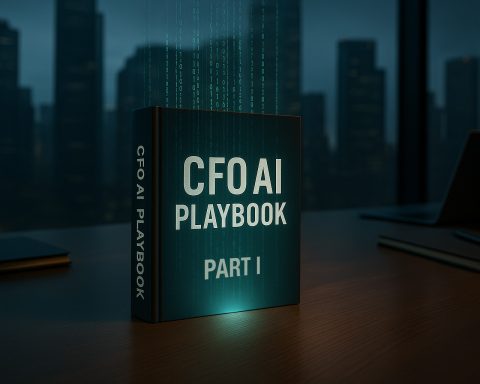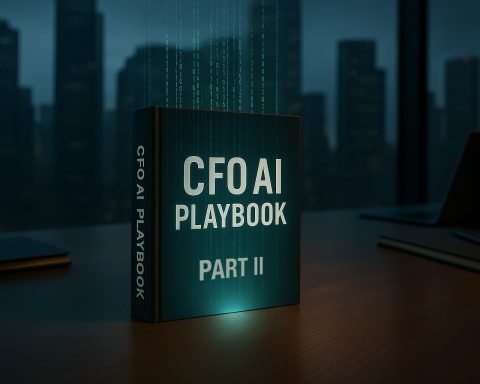In a recent session with The Financial Executives Networking Group, CFOs, Controllers, and Treasurers convened for a high-level exploration of artificial intelligence (AI) applications in finance and business. Led by experienced industry professionals Susan Youngblood, Chief People Officer with a history at IBM and Bank of New York Mellon, and Robert Pravder, a seasoned CFO and active angel investor, the discussion delved into AI’s transformative potential and its impact on financial management and labor dynamics. Both presenters brought a wealth of insights into the intersection of AI with business strategy, productivity, and risk management.
Opening remarks encapsulated an overview of AI’s position in today’s business landscape, followed by an exposition on AI’s effect on various facets of finance. Youngblood and Pravder underlined key areas such as the differences between machine learning and generative AI, the deployment of AI across industries, and importantly, the implications it has for workforce and labor costs.
A core part of the discussion revolved around Youngblood’s assertion that workforce upskilling and an ongoing learning culture are critical in bridging gaps between employee skills and rapid AI advancements. She also emphasized the criticality of change management in transitioning the workforce to accept AI technologies.
Pravder, on the other hand, honed in on the applications of AI within organizations, linking maximum productivity gains to certain attributes. The leveraging of AI in data recombination to create new value, the import of a sustained process improvement culture, and the value of having decentralized innovation teams and diversity were highlighted as elements for successful AI investments.
Several participant queries emerged during the presentation, pointing to concerns about potential job displacement caused by AI, the reskilling requirements for employees, and AI’s impact on job satisfaction and retention.
In summary, the presentation illuminated the transformative potential of AI in financial management, underscoring the necessity of strategic investments in upskilling, change management, and innovative AI applications. Youngblood’s and Pravder’s insights provided invaluable guidance for CFOs, Controllers, and Treasurers navigating the convoluted landscape of AI in the financial sector.
Closing this note of wisdom, The Financial Executives Networking Group expresses its deep gratitude towards Susan Youngblood and Bob Pravder for their thought leadership and invaluable input to the discussion on artificial intelligence in financial management.
About the Presenters
Susan Youngblood
Susan is a technology CHRO and AI consultant who has launched, transformed and acquired companies. At Fortune 50 and FTSE 100 companies such as IBM, BNY Mellon and London Stock Exchange Group as well as an AI software startup, she enabled high growth and faster time to market by navigating teams through the human capital agenda at critical inflection points: new company launch, digital transformation, M&A, global expansion and rapid scaling.
Susan helped implement Artificial Intelligence (AI) and Robotic Process Automation (RPA) in a 9,000-person global operations organization. She also remediated critical cybersecurity and resiliency deficiencies by rapidly upskilling a 13,000-person global technology team. Her combination of technical savvy and human capital management expertise positions her to advise boards and leaders on preparing for the AI-enabled workplace.
Susan architected the human capital strategy for the launch of the AI software firm Ascendion, where she was the Chief People Officer. Earlier, she worked with Blackstone to prepare for the $27B sale of fintech Refinitiv to LSEG and led integration planning. At IBM she successfully managed eight global acquisitions and integrations totaling $1B Enterprise Value. Susan’s strategic approach to workforce management has consistently delivered multi-million-dollar savings, evidence of her approach to driving high ROI.
Susan serves on the Board of Directors for Cornell University’s ILR school and is an angel investor. She holds a bachelor’s degree in psychology from Vassar College and a Master of Industrial and Labor Relations (MILR) degree from Cornell University, where she was also the assistant coach of the women’s tennis team.
Robert (Bob) Pravder (FENG Member)
Following a 22-year corporate career that included Paramount Pictures Corporation, Dun & Bradstreet and The Nielsen Company, Bob transitioned to early-stage/entrepreneurial companies as co-founder of a health & wellness business that was acquired by Whole Foods Market.
Bob then served as CFO for middle market companies primarily in health & wellness, organic foods, eLearning and manufacturing, all businesses notable for the rapid changes they were undergoing, primarily in response to growth. Bob also served as CFO for private equity owned companies and guided a health & beauty aid company through a successful $375 million exit to a strategic buyer.
Bob is presently an active member on the Board of Directors of the Angel Investment Forum (AIF) in Connecticut, and a member of the Chicago Booth Angel Network (CBAN), the Angel Capital Association (ACA), the National Association of Corporate Directors (NACD) and Private Directors Association (PDA). Bob is presently engaged in a start-up venture in the film production industry and mentors early-state companies. As an angel investor, Bob has taken an interest in AI as more early-stage companies are incorporating AI into their business models.
Bob earned his MBA from of University of Chicago Booth School of Business with distinction and BSBA from Washington University in St. Louis.






















